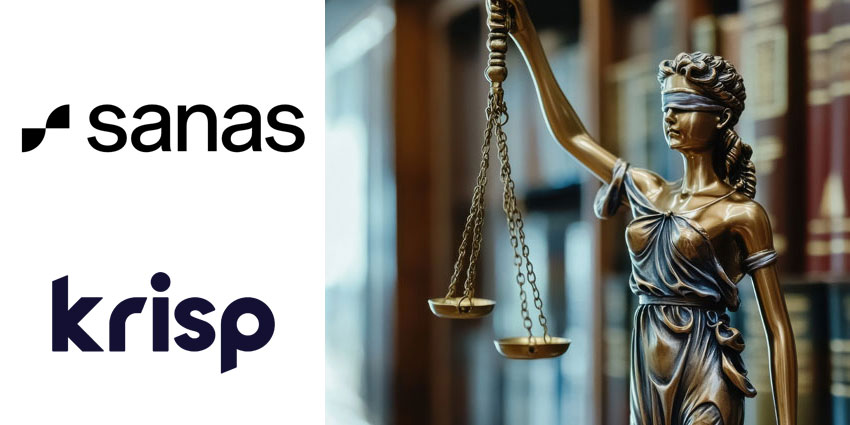Thanks to its tremendous resource pool, the question is not: can Google compete in CCaaS? Instead, it is: will Google compete in CCaaS? Is the incentive truly great enough for Google to go all-in?
Yes, the space is growing. Some suggest it will double in size by 2027. And Google has a significant opportunity to tie its CCaaS platform with Chrome and thrive in the browser-driven hybrid world.
However, its business is so skewed to search it’s difficult to predict how serious it is about not only CCaaS but its entire enterprise business.
Even if it were to enter and take 10 percent of the world’s contact center seats, would that move the needle in its revenue goals?
This question plays on the mind of Zeus Kerravala, Principal Analyst at ZK Research. He states:
When you look at anything Google has ever done in business – whether it’s the Google Apps suite, Google Mail, Google Chat, and so on – they’ve never really invested the resources to make a strong go of it.
Some small businesses and companies that despise Microsoft often adopt these applications.
As a result, Google often ends up as the alternative choice, adopted by those frustrated with their existing solutions.
Always On the Outside Looking In
Google has become synonymous with sitting contently on the precipice. Almost there, but not quite, regarding many elements of the enterprise stack.
Kerravala gives the example of Google’s UC proposition. “For four or five years in a row, I predicted this is the year Google is going to make a run at UC, and they don’t.”
In addition, when it comes to the contact center – and Microsoft will likely face this problem as it expands its CCaaS solution – “good enough” doesn’t cut the mustard.
After all, the contact center is central to many organizations’ customer retention and acquisition strategies. It has to work, it must be reliable, and it needs to have many bells and whistles.
As a result, half-baked products are unlikely to make much of an impact in the space. Unfortunately, Google has somewhat of a history of delivering such solutions.
Consider its Apps suite. It is a longstanding feature within Google’s enterprise business, yet it misses many of the advanced features of Word, Excel, and PowerPoint. As such, it is rarely used by many larger firms.
While speaking to CX Today, Kerravala added:
I think they will have some success in the smaller market, when you need a light set of features. But, as soon as you need to do anything advanced, Google tends to fall down.
Check out the full interview – which also ponders Salesforce’s CCaaS entrance – here:
Can Google Change the Storyline?
Many may point to Google’s close partnership with UJET as a sign that it will take CCaaS more seriously. After all, UJET is well-established in the space.
Yet, as Kerravala states:
That is an interesting proof-point in itself. If they were more serious about it, why didn’t they just buy UJET? They certainly have the resources.
Perhaps, it could be an attempt by Google to dip its toes in the CCaaS market and “try before they buy.” But does it need to take such an approach? It could roll up a UJET, Talkdesk, or another market leader if it wanted to.
Moreover, consider the launch of its CCaaS solution. It came during a breakout session at Google Next. Indeed, the news seemingly did not warrant a keynote session.
However, that session did offer much food for thought, noting how Google already has its foot in the door of many contact center operations through its Contact Center AI Suite.
The Opportunity Is There: Will Google Seize It?
Now that Google has evolved its Contact Center AI Suite into a much deeper CCaaS platform, it may build outwards and fulfill many more contact center needs.
Such promise has enabled it to entice high-profile adopters in DPD, E.ON, and Marks & Spencer, which can harness its evermore impressive conversational AI and voice innovations.
In addition, by tying its solution with Chrome, Google may gain further ground in the space.
These examples highlight the potential for Google in CCaaS. Yet, is the incentive alluring enough for Google to carry out such a strategy, build out its platform to meet broader cross-sector needs, and establish the necessary partner base? Perhaps only time will tell.
Nevertheless, the opportunity is there. Whether Google will grab it remains to be seen. Kerravala has his doubts, stating:
It’s hard to get people at the top of Google to look at the enterprise because the search business is so big, and it’s so hard to move the needle with anything but search.
However, the potential is exciting if it can accelerate its innovation curve and closely connect the Contact Center AI solution to Chrome, Looker, and other elements within Google Cloud.
Google may even take the reigns as the most exciting contact center entrant, or – as some predict – it will remain forever on the edge of CCaaS relevance.







